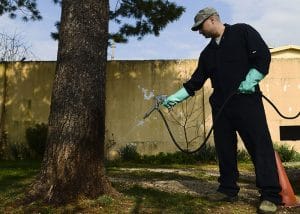Table of Contents
Benefits of Good Local Pest Control:
Integrated Pest Management Principles
Life is easier with good local pest control.

It might be hard to hear, but if it weren’t for many pests, we probably wouldn’t be here. For all intents and purposes, insects are at the bottom of the food chain. Without them, plants that rely on them for reproduction and animals that depend on them for survival would be in a dire situation. Even pests like spiders and rodents do serve a purpose (albeit some more than others).
How Pest Control Services Can Keep You Safe
Pests in your home aren’t just a nuisance and an embarrassment–they also pose health risks. Pest control services can protect you from harm by:
#1. Removing all pests that can cause health problems
Pests can spread a communicable disease to the people who live in your home, your pets, and guests. Pests also can cause a wide range of other health problems such as:
- allergic reactions
- infections (e.g., when you scratch so much you break the skin)
- food contamination
- asthma
- mental stress.
Pest control specialists are highly knowledgeable about all types of pests, where they like to live, and how they get into your home. As licensed professionals, they also have access to more-effective pesticides that the general public doesn’t have. This combination of expertise and the proper chemicals allows pest control services to completely remove any health threat.
#2. Eradicating the pests in a safe manner
Do-it-yourselfers can create their own health problems. Some efforts at removal–such as trying to get rid of a nest of bees or wasps–can lead to immediate personal injury. Less dramatic, but also of serious concern, is the improper use of store-bought pesticides.
If you don’t know what you’re doing, you can actually increase health risks by exposing yourself and others to harmful chemical effects.
#3. Ensuring your home stays free of pests
To keep your home safe from pests, you need to be vigilant about preventing a re-infestation after treatment. Pest control services can discuss preventative measures with you and also schedule regular pesticide treatments to keep your home from being at-risk of continued pest-related health issues.

“To keep your home safe from pests, you need to be vigilant about preventing a re-infestation after treatment.”
Rest Easy Pest Control
When the time arises that you realize you have an infestation that you simply can’t handle, it’s time to call on the assistance of local pest control companies. Let’s take a look at how they make life easier.
We Aren’t Afraid of Bugs
A large proportion of humans don’t like pests, especially the creepy-crawly variety. If a bug gets on our arm, for instance, even if the bug is completely harmless, we will almost always flinch away. This is how we’ve been bred.
Many homeowners are not only disgusted by bugs; they don’t want to even go near them. Same with arachnids and rodents. Pest control specialists don’t have that issue.
They have no problem entering a person’s house and tackling whatever pest problem may be inside. For those who are a little squeamish, they are the unsung heroes.

We Handle the Big Jobs
Many pest problems can be handled by the homeowner, apartment renter, etc. But what if you have a full-blown infestation that’s too big for you to handle? For example, bed bugs are a serious matter, and in many cases, a homeowner will need professional help to guarantee that these critters are all exterminated.
Another great example is a termite infestation. A termite colony often consists of tens of thousands of the little wood-eaters, a job that is far too big for the average person to tackle without professional assistance.
We Guarantee Our Work
We all want to take care of our own homes and one way that we accomplish this is by getting rid of whatever pests get inside our homes. That is all fine and dandy, but what if you miss some? Many pests are great at hiding, which means that within weeks, you might have a second infestation.
Hiring a pest control gives you security. Once a job is completed, any subsequent infestation that occurs within a predetermined amount of time will be covered. This gives you peace of mind that your home will be clear of these pests.
Integrated Pest Management
Integrated Pest Management (IPM) or Integrated Pest Control (IPC) is a broad-based common sense approach that integrates effective pest control practices that are also environmentally sensitive. IPM aims to minimize pesticides and focus more on pest prevention by using information on pests life cycles and their interaction with our environment.
By doing so, we can reduce the risk to human health and nature. IPM can be used to manage all kinds of pests anywhere; from agricultural to non-agricultural areas such as homes, gardens, and businesses. IPM focuses on long-term prevention of pests and their damage to the ecosystem.

“IPM can be used to manage all kinds of pests anywhere; from agricultural to non-agricultural areas such as homes, gardens, and businesses. IPM focuses on long-term prevention of pests and their damage to the ecosystem.”
-Rest Easy Pest Control
Pest Monitoring & Correct Pest Identification
In IPM, monitoring and correct pest identification are of the utmost importance. They can help you decide whether pest control is needed. Monitoring means checking your home, buildings, garden, landscape, forest or crops (where applicable) to identify which pests are present, how many there are and what damage they have caused.
Correctly identifying the pest is key to knowing whether the pest is likely to become a problem and in determining the best management strategy.
After monitoring and correctly identifying the pest and its specific biology and environmental factors, you can decide whether the pest can be tolerated or whether it is a problem that requires control. If pest control is needed, this information also helps you select the most effective pest management methods.
—————————–
Related Article:
Pest Control Checklist NYC and Long Island Homeowners Should Do
—————————–
Integrated Pest Management Control Methods
The most effective way to prevent pests is by using a combination of methods that work best together than separately. There are four common groups:
– Biological Control. This is the use of natural enemies including predators, parasites, pathogens, and competitors. Using these enemies can control pests and the damage they cause.
– Cultural Control. Cultural controls are practices that reduce pest establishment, reproduction, dispersal, and survival. An example would be changing irrigation schedules reducing pests since too much water contributes to root disease and weeds.
– Mechanical and Physical Controls. This kills a pest directly or makes the environment unsuitable for a specific pests needs. Traps for rodents gives you an idea of mechanical control. Physical control is a barrier installed over growing berries to prevent birds from eating them or insects destroying them.
– Chemical Control. This is basically the use of pesticides. In IPM, the pesticides are used only if necessary and in proper doses to not cause harm to people.
Benefits of Integrated Pest Control Plans
The benefits of Integrated Pest Control Plans are great. IPC reduces the need for pesticides, thereby shielding the environment from excessive pesticide use. IPM also fosters clean water supplies and promotes sound structure and healthy plants.
Rest Easy Pest Control is proud to utilize integrated pest management methods to solve pest problems while minimizing harm to people and the environment.***
Related Articles:
- Do Ultrasonic Pest Repellents Work?
- Carpenter Ants Infestation
- Top 5 Pests on Long Island
- Top 3 Most Harmful Pests to Avoid This Summer
- Prepare to Lookout for These Pests in the Spring Months
- Benefits of Good Local Pest Control
- Ant Problem in Spring
- Caterpillars Devouring Brazil’s Corn
- Arthropods: An Amazing Species
- Black Death
